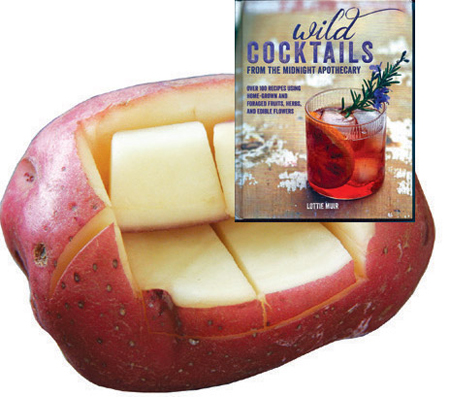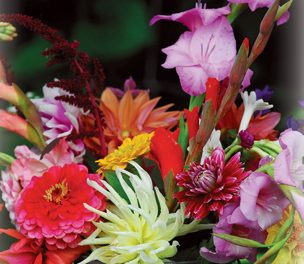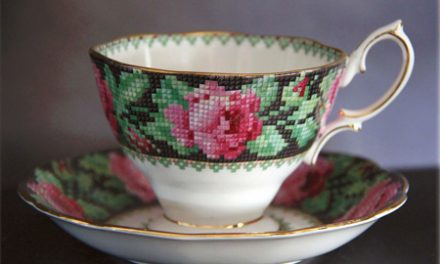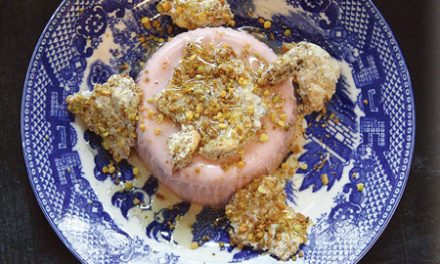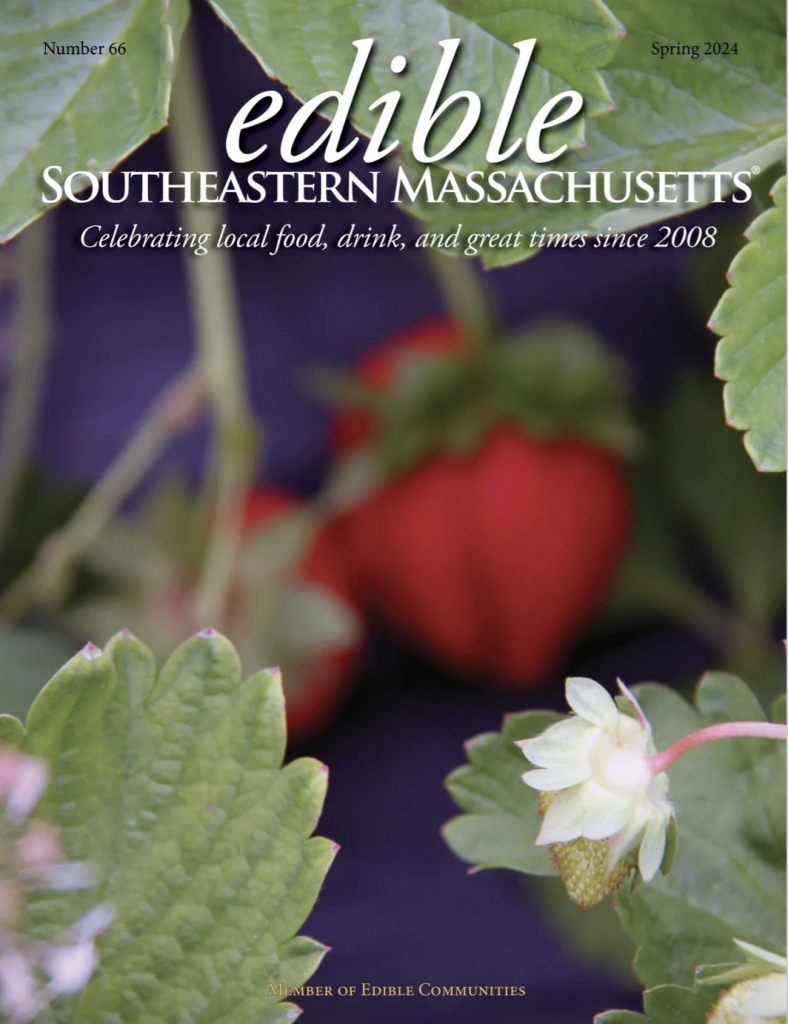 Enter to win a copy – click here.
Enter to win a copy – click here.
There is a Chinese proverb that says, “Whoever loves and understands a garden will find contentment within.” No one understands and loves a garden more than gardener-turned-mixologist Lottie Muir, aka The Cocktail Gardener, whose plant-powered cocktails regularly bring contentment to all who imbibe them.
Lottie’s interest in botanical cocktails developed while wild food foraging. This, combined with her need to build dens and create secret spaces, has led to various gardening and design projects. These included a project in 2012 to transform the neglected rooftop garden above Brunel’s Thames Tunnel in Rotherhithe, south east London, into a community potage, or traditional kitchen garden, with vegetables, herbs, and flowers. Lottie was asked to put on an inspiring event as part of Museums at Night in this redesigned garden. “The event featured a cocktail bar which used herbs and flowers to infuse and garnish the cocktails. The garden-inspired bar was a hit and became a permanent fixture of the garden, aptly named the Midnight Apothecary Botanical Cocktail Bar.”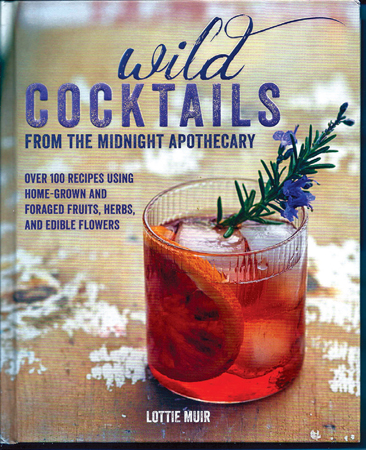
Lottie’s new book, Wild Cocktails: From the Midnight Apothecary, is divided into three chapters, each imparting tips and recipes from her successful bar. “The Cocktail Cabinet” is about extending your cabinet outdoors using garden and foraged botanical ingredients to infuse and garnish your cocktails. Lottie lists the various spirits (“The Main Act”) used in the recipes as well as ingredients commonly found in the pantry such as vinegars, teas, and gelatin. There is a very comprehensive list of garden herbs and flowers that feature in infusions and syrups. She suggests using both the young leaves and letting some plants go to seed for edible garnishes. Foraging is another way to add new flavors and Muir includes do’s and don’ts as well as safety information for those new to this concept. She talks about kitchen equipment, most of which the average household would have, and gives a useful guide to the various shapes of cocktail glasses, recommending scouring thrift shops to build up your collection.
Chapter 2 “Cocktail Elements” is a wannabe-mixologist’s delight and includes macerations and infusions such as Lavender Gin and Nasturtium Rum. Liqueurs can also be made from the familiar lemon balm to the more unusual quince and medlar (an apple- like fruit from the rose family). Flavored syrups run the gamut from honeysuckle to rhubarb and ginger. Lottie’s instructions for creating these important cocktail elements are easy to follow and inspirational. Batches of different flavored syrups, accompanied by a bottle of gin or rum, could be the next Christmas gifting idea. Bitters, a vital component of a good cocktail, balance out the alcohol, sugar, and acidity. Lottie describes bitters as “the salt and pepper of a cocktail” and, luckily for foragers and gardeners, several of these agents are close at hand—rhubarb, artichoke leaves, and burdock roots, for example. These bitters are usually soaked in a high-proof alcohol to extract the flavors and properties.
Inspired by the first two chapters of Wild Cocktails, the reader is ready for Chapter 3: “The Recipes.” Described by Lottie as “an orgy for the senses,” her gorgeous and unique brand of wild garden cocktails from the Midnight Apothecary Botanical Cocktail Bar can be recreated in your own kitchen. There are recipes for Garden, Foraged, and Restorative Cocktails, as well as Mocktails, and over 50 pages of beautifully photographed drinks with names like Wild Violet Sour (with its egg white foam), Very Rum & Berry, and Tarragon & Apricot Caipirinha (a nod to Brazil’s national drink.) One of the most intriguing is the Pea-Tini, the flavor and color of which comes from a pea puree. Using frozen peas, it was easy to concoct and surprisingly tasty. That drink alone would make a wonderful icebreaker and conversational starter at your next cocktail party.
Lottie Muir’s book is a delight for the senses and would make a wonderful gift, either by itself or, as previously mentioned, with some pretty thrift store glasses or a cocktail shaker. I recommend reading it before planting season begins so you can start designing your own cocktail herb and flower garden. And give that Pea-Tini a try! Here’s looking at you, kid.
Westwinds Bookshop
Depot Street Marketplace
Duxbury, MA 02332
(781) 934-2128
www.WestwindsBookshop.com
By: Jayne Guitart works at Westwinds Bookshop and is now a cocktail convert

